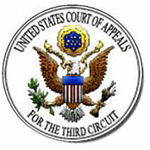|
|
|
|
Continue reading ETI Views and News at
econtech.com,
or download a
printer-friendly version.

Follow us on Twitter @EconAndTech
|
|
Third Circuit Court of Appeals relies upon ETI testimony in overturning Sprint ETF settlement agreement
|
|
 On June 29, 2012, the United States Court of Appeals for the Third Circuit vacated a 2008 class action settlement reached with Sprint Nextel over its practice of charging flat rate early termination fees (ETFs). The Third Circuit Court relied upon the testimony of ETI Vice President Colin B. Weir in reaching its decision. In reversing the settlement's approval, the three-judge panel found that the lower court had failed to act in the best interest of potential plaintiffs when it decided that it would be unreasonable for Sprint to conduct a search of its electronic billing records that Sprint admitted could identify more than 4-million class members.
On June 29, 2012, the United States Court of Appeals for the Third Circuit vacated a 2008 class action settlement reached with Sprint Nextel over its practice of charging flat rate early termination fees (ETFs). The Third Circuit Court relied upon the testimony of ETI Vice President Colin B. Weir in reaching its decision. In reversing the settlement's approval, the three-judge panel found that the lower court had failed to act in the best interest of potential plaintiffs when it decided that it would be unreasonable for Sprint to conduct a search of its electronic billing records that Sprint admitted could identify more than 4-million class members.
The Larson Case
In Larson et al v. Sprint, a nationwide class of plaintiffs alleged that Sprint's flat-rate early termination fee (ETF) of as much as $200 was illegal and violated state consumer protection laws. After a year of litigation, the parties reached a settlement agreement that was ultimately approved by the trial court. Under the proposed settlement, Sprint had agreed to pay $14-million in cash and $3.5-million in services and credits. Sprint also agreed not to include flat-rate ETFs in its contracts. The settlement covered the Larson case and numerous other similar class actions then pending in other state courts.
The district court had originally rejected the proposed settlement notice plan, suggesting that Sprint had not made an adequate effort to identify potential class members, but subsequently approved the amended notice plan after Sprint submitted a declaration stating that a search of any of its billing records would be unreasonable.
ETI was retained by a separate group of objector plaintiffs after the settlement agreement was reached as part of an effort to determine whether the terms of the deal were inadequate, whether Sprint's efforts to identify potential plaintiffs thus far were unreasonable and if the additional proposed efforts were, in fact, reasonable. Mr. Weir's testimony addressed the ability of Sprint to identify individual subscriber accounts (as opposed to government or corporate/business accounts) from Sprint's own billing records. Mr. Weir conducted such an analysis on a subset of Sprint's records and determined that identification of individual subscriber accounts was indeed possible and that the required analysis was not burdensome.
Larson in light of the verdict in Ayyad v. Sprint
ETI had previously been instrumental in obtaining a $299-million jury verdict in another class action case involving Sprint's early termination fees (Ayyad v. Sprint). That case had also challenged Sprint's practice of charging flat rate ETFs. The case culminated with a 5-week jury trial during which ETI President Dr. Lee L. Selwyn provided expert testimony. The $299-million judgement was obtained for a class of approximately 1.9-million California subscribers. (Sprint's appeal of the Ayyad case is still pending.) The Larson settlement represents a nationwide recovery of just 5% of the amount awarded to the California-only subscribers, thus raising serious questions as to the adequacy of the Larson agreement.
For more information, contact Colin B. Weir at cweir@econtech.com
Read the rest of Views and News, July 2012.
|
|
|
|
About ETI. Founded in 1972, Economics and Technology, Inc. is a leading research and consulting firm specializing in telecommunications regulation and policy, litigation support, taxation, service procurement, and negotiation. ETI serves a wide range of telecom industry stakeholders in the US and abroad, including telecommunications carriers, attorneys and their clients, consumer advocates, state and local governments, regulatory agencies, and large corporate, institutional and government purchasers of telecom services. |
|
|
|
|